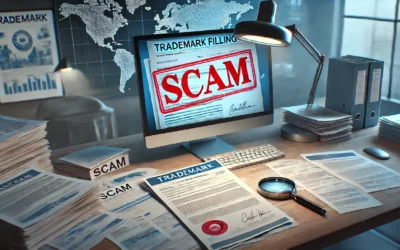Many companies think that registering a trademark is not important. Here are four reasons we hear the most.
Reason 1 – We’re too small and it’s too early.
Many companies think that trademarks are relevant when the brand is already big and valuable, or that since they have start started, it is not something that needs to be done right away. Those views and understandable but simply wrong.
Coca-Cola has tens of thousands of trademarks. They have not always been a local giant. In the beginning they sold only a couple of bottles per day, but they registered their trademark almost as soon as the company was incorporated. So did Uber and Google. When Coca-Cola, Uber and Google protected their brands, they were not billion dollar companies. They were small and it was early, but they recognised early on that they wanted to be more than just commodities.
Building a brand takes confidence. If you have plans to grow your business, even if you are now small and new, it is essential to protect your trademark. Protecting your trademark by registering it will make your journey as a business much easier. If you are not sure how trademarks will help you, read our blog “10 reasons to register your trademark”.
Reason 2 – IP benefits big players
Many entrepreneurs think that intellectual property is for big companies. It takes money to create it, it does money to protect it, and it takes money to enforce it.
While it is true that intellectual property requires financial investment, it is not true that it mainly benefits big companies. On the contrary, intellectual property and trademarks probably benefit more small companies than big companies. It is mainly what gives little companies a fighting chance against the big ones.
Small companies are often very good in developing useful new products and services They can do that much faster and much cheaper than big companies. Smaller companies are often more creative and innovative, and larger companies rely on startups and small companies to come up with new solutions before buying them out. Startups get routinely acquired because they have come of with a better or smarter way of doing things.
Intellectual property is a key component of this cycle. Without it, small companies would not have a chance. Big companies can always throw more money on marketing, customer acquisition, et cetera. Smaller companies cannot do that. They can only compete by doing things better, and all they have to protect them is their brands and innovations. Intellectual property makes it possible for small companies to compete against big ones. So if anything, small companies rely on intellectual property more than big ones.
Reason 3 – We have been using our trademark for [insert any number of years] without registering it, and never had a problem
The world is full of companies that have been doing business without protecting their trademark. So, why should they do it if not doing that has not prevented them from being a successful business?
We face a lot of clients who are in this situation. It’s almost impossible to change their mind. Nonetheless, here are some reasons to protect your brand even after you have used it for a long time.
- The fact that you have not registered your trademark and have not had any problems does not mean that you won’t have any problems. This is like justifying driving without a seat belt because you’ve never had an accident before.
- It is possible that there have been problems or lost opportunities, but since branding and trademarks are clearly not on your radar, you have simply missed noticing them.
- If somebody is eyeing to acquire your company, they will look what assets you have protected. Not having your trademark protected does not reflect well on the value of your brand or the way the business is managed.
- The world has changed. With globalisation and digitalisation products and services are available from almost any country to almost any country. Even if you have considered yourself only a local business, it is now possible to expand the brand internationally for example by using large trading platforms.
Reasons 4 – We’re a B2B company, trademarks are for B2C companies
This is a suprisingly commonly held view, but brands matter just as much in B2B context. This myth is probably based on the notion that there are much more consumer brands and they are more product based. You are more surrounded by consumer brands in your everyday life. Just think of a trip to a supermarket. You will be exposed to tens or hundreds of brands in every trip. Just selecting a bag of nachos exposes you probably to ten brands. B2B brands are also more commonly service brands (of course not always). You are not surrounded and bombarded by them in the same manner. This does not mean that B2B brands are not valuable or that brands do not matter. Another reason might be the though that corporations are more informed buyers and their decisions are rational than emotional. In other words, that they base their decisions on things like technical specifications and price, rather than something vague and abstract such as “brand”.
According to BrandZ report, the world’s top 10 B2B brands are Microsoft, IBM, UPS, SAP, Wells Fargo, GE, Accenture, Intel, Oracle and Huawei. These are extremely powerful brands and in fact some of the world’s most valuable brands even if consumer brands are included. Aside from these megabrands, you could think of smaller companies like MailChimp, Hubspot, Salesforce, 99design, Stripe and PayPal. These are all extremely powerful B2B brands. It is evident that brands matter just as much in B2B context than in B2C context.
Also, often companies offer products and services for both consumers and businesses. Take Google, for example. It has a lot of useful services for consumers (search, email, etc.), but almost all of its revenue comes from B2B sales (AdWords, G Suite, etc.). Same with Facebook. Many brands that are seemingly B2C brands actually make their money on B2B sales.



